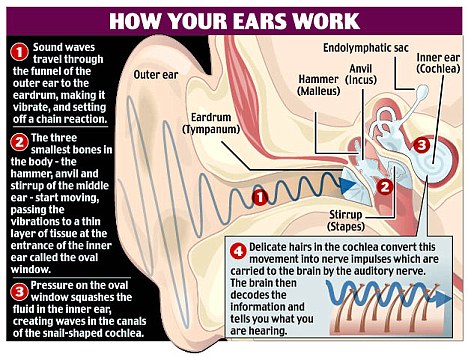[divider]The Damage We’re Doing[/divider]
Okay, duh, listening to loud noises can make you lose your hearing. And yeah, we like to go to shows and listen to music a lot. But we’re different, right? Surely we won’t experience hearing loss, that’s only for the bass heads who stand too close to the speakers or the guy on the bus who’s Taylor Swift fandom is being broadcast to everyone within a five-seat radius.
No. That’s not how it works. The thing about the way human’s ears capture vibrations and turn them into sounds is that it is done in large part thanks to hair cells. The eventual death of these all important hair cells from prolonged exposure to loud noises is the main culprit of noise induced hearing loss. The problem is that, unlike in other animals, human hair cells don’t grow back. Once they die, they’re gone for good.

At maximum volume, MP3 players measure around 105 decibels, with concerts around 120 decibels, and fire alarms at the top of the spectrum at 150 decibels. For reference, sounds of less than 75 decibels, like a conversation with another person, are unlikely to cause hearing loss, even after long exposure. However, there’s a threshold, around 85 decibels, where the game changes rapidly. Long or repeated exposure to sounds around 85 decibels can cause hearing loss, and as the sound gets louder, the less time it takes for noise induced hearing loss to occur.
Of course, many of these factors are dependent on each of our individual situations. Our genetics, how often, how loud, and how long we listen to our music all play major roles in just how much damage we’re inflicting on our ability to hear. Regardless of those variables, one simple fact remains: with some common sense and a little foresight, noise induced hearing loss can quickly become a thing of the past.


